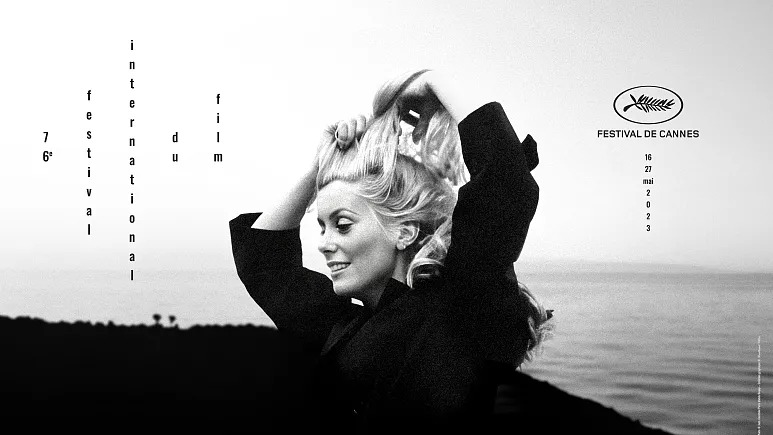The Cannes Film Festival is a PhD in cinema.
The official selection, including screenings out of competition, parallel sections, and world premieres, constitutes a remarkable treatise on the art of filmmaking.
Although it is difficult to isolate any common ingredient among the diverse collection of films, we could mention a characteristic, such as an aroma of an era change in the way films are made, in an art whose origin has always been linked to constant technological evolution.
Contrasting with this aroma of renewal is nostalgia for the analog, for a cinema of details and glimpses that focuses its gaze on seemingly insignificant things.
It constructs narratives of light and time where reflections and even the format itself seem to reveal a humanism that refuses to succumb to a programmatic cinema of superheroes and multiverses.
In these stories, we also find the greatest contradiction of Cannes: the best films of the festival are about faces whose lives unfold on the periphery of the world, who will never be part of the glamorous red carpets, the hotels where filmmakers and actors stay, and the luxurious restaurants filled with delicacies where a certain elite of the film industry gathers, all against the backdrop of the beautiful beaches of the French Riviera.
Les herbes sèches
Often, cinema asks intimate questions freed in the form of fundamental reflections on the origin of the universe and the human condition, in a tapestry where light and sound, the very constituents of the cinematic language, are seen as creators of meaning.
Since his early works, Turkish director Nuri Bilge Ceylan has questioned these cosmic foundations, embodied in human dramas. He reimagines the photographic seed of cinematic reality and ponders a kind of philosophy of cinema.
Of course, these intentions are not far from risks and the impossibility of their visual materialization.
But it is appreciated, as an anonymous voice in the Lumière Theater of the Palais des Festivals in Cannes shouts, that these temporal, visual, and even theological risks are assumed.
Because, as his cinema expresses beauty, perhaps the answers lie in that eternal dialogue between the present and the past, between generations, between universes. In that form of light that summons us to remember the joy of what happens forcefully for the first time.
That emotion, transformed into madness, allows us to see snow as a miracle, it draws us into a communication where everything is poetry, from a handwritten letter, the pencil, the words, the dried leaves, to the intimate desert that inhabits us.
Perfect Days (Ecumenical Jury Prize)
Not all jobs seem equal, such different forms of employment in terms of wages, interactions, and humanity seem to create new castes.
Who would want to work cleaning public restrooms?
Wim Wenders creates an endearing character in his new tribute to Yasujirō Ozu. Someone capable of putting their heart into actions rather than words: compassionate, hospitable… and who, every day, in a kind of poetic justice, receives a reward for their hard work in the form of a full glass of water.
Confined within the frame of an almost square screen, narrowing the field of vision to focus on this almost silent character who attends to their work with devotion and listens to music from another time on cassette tapes.
Trusting in love, in a game that is a communication of hope, in the communion of that diversion and a future of better days that will always be a mixture of anticipation and melancholy.
Particularly noteworthy is their vocation for recurrent photography of a loyal friend whose beauty they recognize and admire, capturing them over and over again to preserve their illuminating light.
This film poem allows us to remember the fullness of time embodied in a kiss, in communion with water and music, and in the promise that perhaps tomorrow, not today, we will explore the depths of the sea from which we come.
Il sol dell’avvenire
It is possible to see the freedom of a filmmaker who dares to sing in front of the screen, to reveal their obsessions, and to express hope despite everything that goes wrong in their life and in the world around them.
Because it is true, as Nanni Moretti reflects in his film, that perhaps no one understands Mozart, but his creations bring joy to the world and subdue the noise into an exciting score.
Moretti celebrates cinema by critiquing a new form of cinema that seems to know everything about production and audiences.
A programmatic cinema subordinated to frenetic consumption and seemingly infallible marketing strategies, but only on its surface.
This Italian filmmaker crafts his work from the antithesis of this programmatic vision. He questions, he revels in philosophy, in the history of art and cinema, he quotes Kieslowski not to come out clean but wounded by questions that can generate a conversion of art.
That’s why his cinema sings, dances, and becomes unexpected, chaotic, like life itself. It navigates a sea of uncertainties in search of love and a certain cinema that, from creative ethics, continues to illuminate the future.
These stories filmed by elderly filmmakers (Kaurismaki, Scorsese, and Ken Loach should also be included) are a powerful call full of questions about a world that resists dying, brimming with beauty and hope, captured by a technical instrument that prompts an attempt to provide answers to the questions that have always troubled us, and about which cinema offers its own luminous reflection full of new and urgent doubts.
Edgar Rubio


